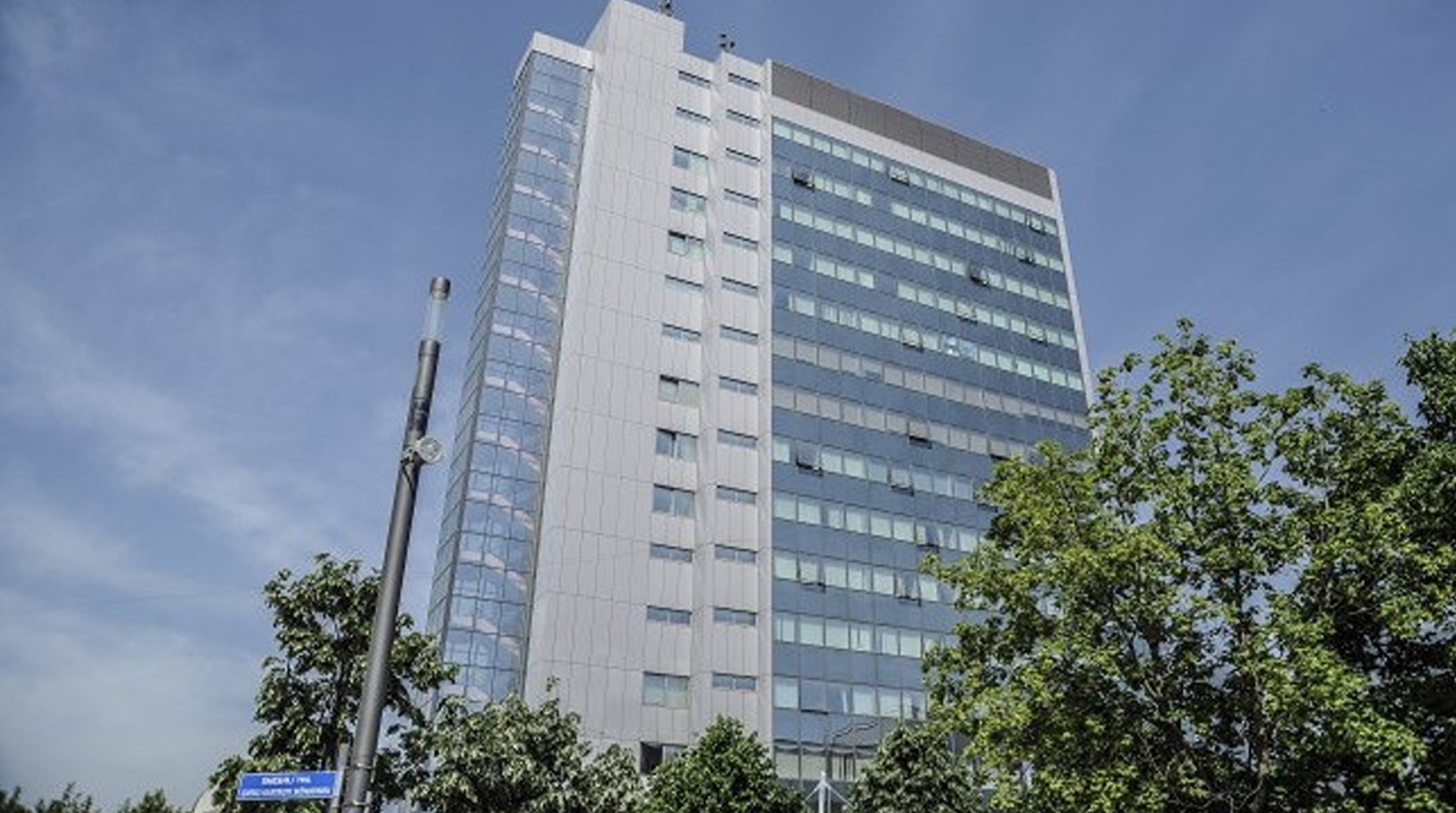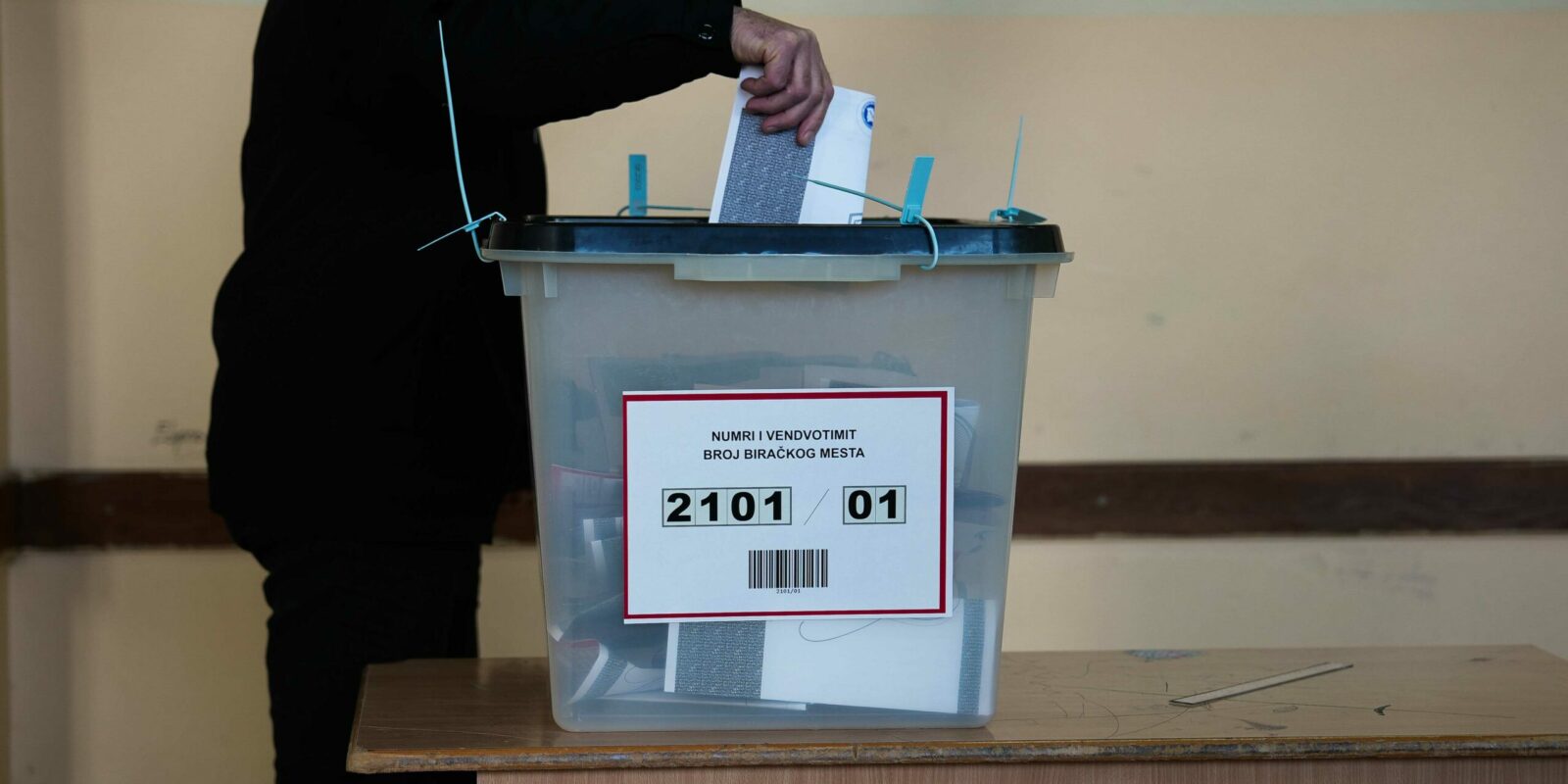After the February 2025 parliamentary elections, Kosovo finds itself in a political standstill, as no political party can form a government on its own and the current ruling party Vetëvendosje’s attempt to negotiate with the third biggest party, the Democratic League of Kosovo failed.
Two months after the Kosovo parliamentary elections, officials from Vetëvendosje, which came out as the winner of the February 9 polls, are sending conflicting messages about whether they can form the government without the need to tie coalition deals with one of the main opposition parties.
After registering as MPs on Thursday several Vetëvendosje representatives told media that the party will form the government without any post-election coalitions.
Vetëvendosje MP, Halil Thaçi, said that the party will form the government with 63 votes without specifying other parties’ MPs supporting it. Similarly, outgoing minister of finances Hekuran Murati, who also won an MP mandate, said “of course, we will have the votes,” without explaining how.
However, only two days prior on April 8, Glauk Konjufca, outgoing parliamentary speaker and deputy leader of Vetëvendosje, told media that his party “has a very transparent position,” explaining the members did not ask for votes to form a government on their own only for them to form a coalition with opposition parties immediately after.
“We wanted [to form the government] on our own. But then we received the result. We did not reach 500 thousand [votes] as we wanted. It is not a sin that we continue with the B scenario,” Konjufca said, explaining that Vetëvendosje is considering negotiating a governing coalition. His statement came after outgoing PM and leader of Vetëvendosje Albin Kurti sent a “consultative invitation” to the opposition party Democratic League of Kosovo, LDK.
Konjufca explained that “after the meetings with the non-majority parties, [outgoing PM] Albin Kurti chose LDK as the first,” describing the choice as a “privilege.”
LDK however, declined Kurti’s invitation for a “consultative meeting.”
Considering the inaugural session of the new parliament’s term is on April 15, the country risks a very fragile government and is dependent on the opposition to even receive a simple majority to pass regulation in Parliament.
Political analyst, Dritëro Arifi, described the potential formation of a coalition government by Vetevendosje as a “Pyrrhic victory,” meaning one that has a toll on the victor and more closely resembles a defeat. He told Prishtina Insight that a potential coalition deal would “come at a cost in future elections because they haven’t upheld the principle of not collaborating with opposition parties. Given the current numbers, it is impossible to form a government without support from the opposition. This will follow Vetevendosje until the end of the mandate.”
Struggles of securing the governing seat

Kosovo Government building. Photo: Atdhe Mulla
Except for a smaller opposition party, all the others have ruled out a potential governing coalition with Vetevendosje.
Lumir Abdixhiku, head of LDK, referring to scolding by Kurti and Vetevendosje members toward his party, wrote on Facebook on April 8 that “amidst the ‘scum,’ the ‘suffocation of the LDK,’ the ‘collaborators of Serbia,’ amidst the great swamp of spitting at us—me, the LDK and our voters—we don’t even find ourselves for consultation,” thus refusing Kurti’s invitation.
Vetëvendosje secured 42.3 percent of the votes in the February 9 parliamentary elections, which translates to 48 MPs. However, to form a government, at least 61 MP votes are required, in the 120 seats parliament. LDK will have 20 MPs.
Vetëvendosje had made it clear during the electoral campaign and after the elections that it prefers to form a government with the MPs from the non-majority communities, not including the Belgrade backed party representing Kosovo Serbs, Srpska Lista, which has nine MPs.
Ten seats in the Kosovo Parliament are guaranteed to the Serb ethnic community and ten to the other non-majority communities: Bosniak, Turk, Gorani, Ashkali, Egyptian, and Romani.
The second biggest party, the Democratic Party of Kosovo, PDK, which won 24 seats in the Parliament, has not officially ruled out a coalition with Vetëvendosje, but its officials have mainly spoken against it.
The two main parties of the AAK-NISMA coalition have had different claims. The Alliance for the Future of Kosovo, AAK, has ruled out collaborating with Vetevendosje, and the Social Democratic Initiative, NISMA, did not. They won eight seats.
Shortly after the election, Fatmir Limaj, leader of NISMA, hinted that he could part ways with Ramush Haradinaj’s AAK after running with it in a pre-election coalition and offer his three MPs to Kurti.
Considering that Vetevendosje MPs mentioned a total of 63 MP votes to form the government, Limaj could indeed become the ‘kingmaker.’ Nonetheless, a potential government arising from this coalition would not survive the constitutional requirement of having a quorum of 80 MPs to elect a new state President in spring 2026.
Failure to elect a President automatically triggers snap elections.
Kosovo risks snap elections

A citizens casts a ballot during the Kosovo February 9, 2025, parliamentary elections. Photo: BIRN/Denis Sllovinja
On April 1, 2025, Kosovo’s President, Vjosa Osmani, confirmed that the first session of the new Assembly would take place on April 15, 2025.
“Kosovo needs a government that is able to act swiftly and efficiently. The world is watching, and we must ensure that we meet our constitutional obligations,” Osmani said in a press conference.
According to legal expert Vullnet Bugaqku, a senior researcher at Prishtina-based think tank Kosovo Democratic Institute, Vetëvendosje, as the first party, must initiate the process of forming a new government. If it cannot secure at least 61 votes in the Assembly before the April 15 parliamentary session, the process will be prolonged.
Bugaqku told Prishtina Insight that on April 15 Vetëvendosje should propose the Parliament Speaker and the deputies. “It will be clear then whether, during this time, they have managed to secure enough votes.”
Vetëvendosje has the right to propose a candidate for Prime Minister, who must present a government cabinet to the Assembly and seek the support of at least 61 Members of Parliament within 15 days of receiving the mandate from the President.
Bugaqku explained that if Vetëvendosje fails to form a government “the President must assess which other party or candidate might be able to gather 61 votes to form a government. The timeframe for this second attempt is ten days. If this attempt also fails, the President must immediately call extraordinary elections, which must be held within 40 days.”
Bedri Hamza, the PDK candidate for Prime Minister, on March 28 declared that if Vetëvendosje fails to form a government within the legal and constitutional deadlines, PDK is ready to take on the responsibility of forming it. However, even if PDK joined forces with LDK, AAK, NISMA, and ten MPs from the non-Serb non non-majority communities, it would only have 62 MPs, also making for a fragile government.





